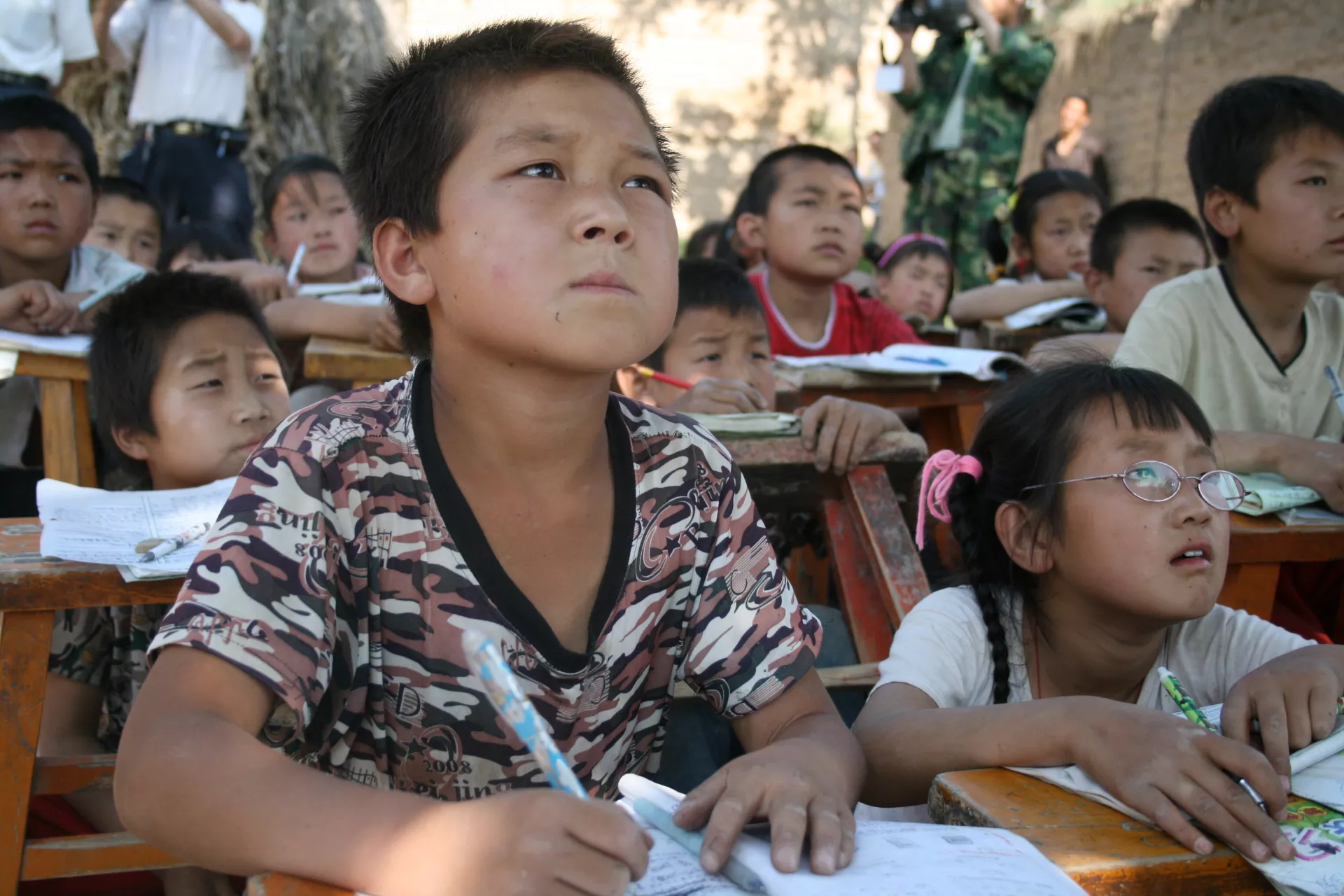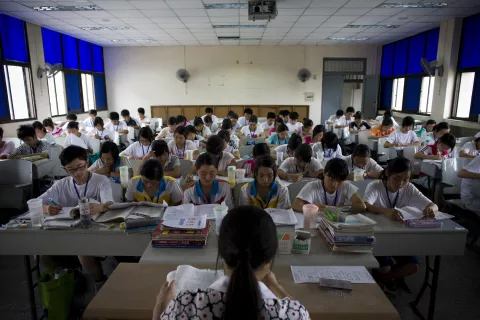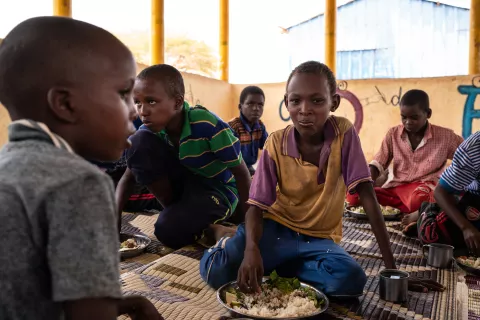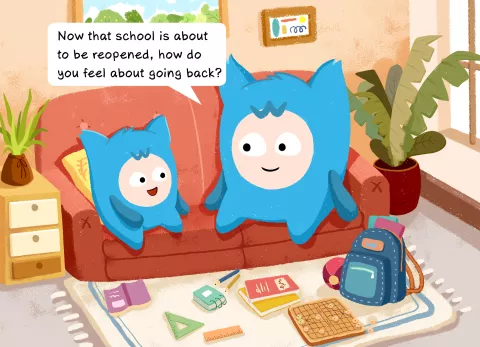Reconstructing Life for Children
Reconstructing Life for Children

Bending over a tiny desk, 7 year-old first grader Zhang Ziwen did his Chinese language homework in a tent by the Bailongjiang River on a Sunday afternoon.
"I used to live in the town with my family. But now we can't live in our house anymore." The boy said. Before the quake, he had full class from Monday to Friday. But after the quake, he only has two classes in the morning on Thursday and Monday in temporary classrooms.
"I am still afraid of the aftershocks. There is no electricity in the tent at night and I was bit by lots of mosquitoes." Zhang Ziwen said. "I just wish to go to school everyday as usual."
Zhang is one of the 518,000 students who have resumed classes in tents or re-fabricated classrooms in Longnan prefecture. About 200 kilometers away from the epicenter Wenchuan of Sichuan province, Longnan prefecture is the worst-hit region of Gansu province.
A total of 2,964 schools in the prefecture were damaged in the earthquake. Since the province's schools practice daylight saving time by sending children home each day for a long midday break, children were on their way back for the 3 pm session when the Wenchuan earthquake struck, causing fewer casualties than Sichuan. But the majority of houses have been assessed as unsafe to live inside. Almost all of the children are camping with their family in makeshift shelters or in open ground among the buildings or along the river bank.
Life in Tents
In Wudu District, the buildings look fine from the outside, yet no one can live above the second storey because cracks in the walls are enlarging every day due to the frequent aftershocks.
Added to that, in the past week, 1.8 million displaced persons in Longnan prefecture have been living in rough conditions with heavy rains, hail storms, and soaring summer temperatures.
Young children are more vulnerable in windy and torrential rain. Three children and a woman were sleeping in a tent while the heavy rain poured in the afternoon of June 13. The wind was so strong that their tent was blown away, nearly taking a five-year-old girl off with it. The girl nearly fell down a steep river embankment to a concrete slab but was caught by a neighbor who grabbed her. The girl's mother was absent when it happened. She dissolved into tears when talking about the possible tragedy of her daughter.
The mother said this is the third time they had to buy a new plastic sheeting for shelter due to the continuous rain and wind. They lost everything in the earthquake and had to buy plastic sheets on their own expense.
A block away from the river bank, a woman was digging a ditch to channel rainwater out of her makeshift tri-angled tent. "It rained over night yesterday. Rains filtered though our tent, and our shoes just floated away. Our quilts and beddings were soaked. We held our children in our arms and stayed up all night, waiting for the day to break," she said, "Now, I want nothing more than a rain-proof tent."
"I couldn't sleep well last night." Zhang Jidan, a junior high school girl said. "The torrential rain made lots of noise on the tents and it is very damp inside."
'I will carry my son on my back to school'
According to the head nurse of the neurological section in Wudu General Hospital, a total of 14 children were sent to the hospital. Most of them suffered from bone fractures due to a collapsed school fence and walls. Almost all have now been released from the hospital.
11-year-old pupil Wang Lei came from Jugan Village, about 20 km away from Wudu district. Wang ran out of the classroom with his school mates when the earthquake struck. When the students rushed to the playground, the 3-meter-high wall collapsed. Wang pushed younger classmates from the falling debris but his legs were buried under the collapsed wall. He underwent amputation and lost his left leg.
"Four rooms of our house were leveled to ground." Wang Yusheng, the father said. "When my son recovers, I will carry my son on my back to school every day to continue his study."
More help needed in schools
In schools that have resumed classes in tents or pre-fabricated classrooms, there is a common need for the children and teachers.
"We find our students less focused on study because it is too hot in the afternoon." Said Zhang Haiping, principal of Wudu Chengguan Middle School. "As the playground is used to accommodate the prefabricated classrooms, sports class and class breaks are cancelled."
"Toilets have become a problem as more students come back to school after the earthquake." Said Mr Mao Zhongrui, principal of Houqu primary school, Bikou Town of Wen County. "The toilet has been severely damaged and could collapse at any moment in the aftershocks. But we have no other choice but continue to use it."
In Bikou Town Primary School, at least 2 students were killed in the collapsed school building. There are 1330 students enrolled and classes have resumed in prefabricated classrooms.
"The children's lives have changed so dramatically since the earthquake. All of the children now live in tents. About 50 percent of our students have stopped going back to school," a fifth grader English teacher said, "The teachers are still trying to find accommodation in tents."
As of June 19, UNICEF has sent 8,000 packages of child clothing, 4 ambulances, 55 sets of 42sqm tents to Gansu. Another 145 sets of 42sqm tents, 60,000 student kits and 2,000 teacher kits will arrive in the coming days.





